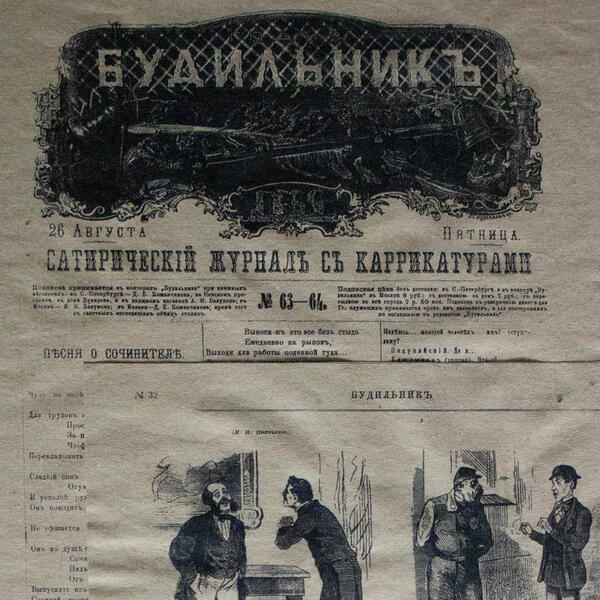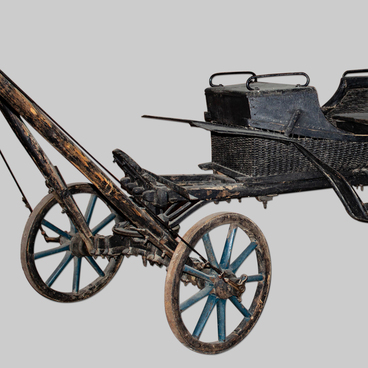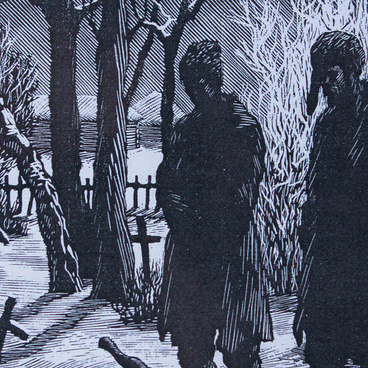In the 1860s, Fyodor Reshetnikov, the Urals writer who did not enjoy much acclaim at the time, moved to St. Petersburg. He managed to get a transfer from Perm to the capital. He was happy to leave the Urals, feeling that he had a great future ahead: ‘I can’t live in Perm, — he wrote in his diary in autumn 1862 — I need a new life… whatever happens. I will leave’. Having found himself in St. Petersburg, Reshetnikov started going through St. Petersburg editorial offices. Soon he began working with many newspapers and magazines, including Iskra (Spark), BudIlnik (Alarm Clock), Novoye Obozreniye (New Review), Nedelya (Week), and Razvlecheniye (Entertainment).
The writer’s relationship with BudIlnik was not always smooth sailing, although it published some of his works, such as the stories ‘Prokopyevna’ and ‘Bygone Wonders.’ In 1866, Reshetnikov wrote in his diary: ‘When I sent Dmitriev, the editor of Budilnik, a small article, he wrote me a sweet letter that he would be very happy if I worked in Budilnik, and asked me to write an article for a humorous collection or bring an article that was censorsed. I wrote and brought Travel Letters, but he said that Travel Letters are too locally specific, and the article The Arrival of the General will be read at a meeting of famous writers, and he was waiting for the artist Sleptsov, i.e., his article’.
The writer compared the Iskra and Budilnik magazines: ‘Budilnik is even more pompous. Even Weinberg considers staff members to be his subordinates. This means that he has already accumulated 5,000 rubles and is thinking of opening his own magazine. When I arrived from PEterhof, I tried to visit him twice and never found him at home…’
When Reshetnikov worked at Budilnik, the magazine had just begun its operations. It was published in St. Petersburg from 1865 to 1871, and then in Moscow — until the Revolution. During the St. Petersburg period, an egalitarian caricaturist Nikolay Stepanov was the editor-in-chief of Budilnik. The magazine published both entertainment materials and speeches against the use of child labor, the exploitation of railway and factory workers. The magazine was repeatedly subjected to censorship repression. In 1866-1867 the literary department of the magazine was headed by the poet Peter Weinberg, mentioned by Reshetnikov in his diary. In the early 1880s, Budilnik published the works by Anton Chekhov under the pseudonyms ‘A. Chekhonte’ and ‘My Brother’s Brother.’ Architect Fyodor Shekhtel and writer Vladimir Gilyarovsky worked for the magazine.
The writer’s relationship with BudIlnik was not always smooth sailing, although it published some of his works, such as the stories ‘Prokopyevna’ and ‘Bygone Wonders.’ In 1866, Reshetnikov wrote in his diary: ‘When I sent Dmitriev, the editor of Budilnik, a small article, he wrote me a sweet letter that he would be very happy if I worked in Budilnik, and asked me to write an article for a humorous collection or bring an article that was censorsed. I wrote and brought Travel Letters, but he said that Travel Letters are too locally specific, and the article The Arrival of the General will be read at a meeting of famous writers, and he was waiting for the artist Sleptsov, i.e., his article’.
The writer compared the Iskra and Budilnik magazines: ‘Budilnik is even more pompous. Even Weinberg considers staff members to be his subordinates. This means that he has already accumulated 5,000 rubles and is thinking of opening his own magazine. When I arrived from PEterhof, I tried to visit him twice and never found him at home…’
When Reshetnikov worked at Budilnik, the magazine had just begun its operations. It was published in St. Petersburg from 1865 to 1871, and then in Moscow — until the Revolution. During the St. Petersburg period, an egalitarian caricaturist Nikolay Stepanov was the editor-in-chief of Budilnik. The magazine published both entertainment materials and speeches against the use of child labor, the exploitation of railway and factory workers. The magazine was repeatedly subjected to censorship repression. In 1866-1867 the literary department of the magazine was headed by the poet Peter Weinberg, mentioned by Reshetnikov in his diary. In the early 1880s, Budilnik published the works by Anton Chekhov under the pseudonyms ‘A. Chekhonte’ and ‘My Brother’s Brother.’ Architect Fyodor Shekhtel and writer Vladimir Gilyarovsky worked for the magazine.



